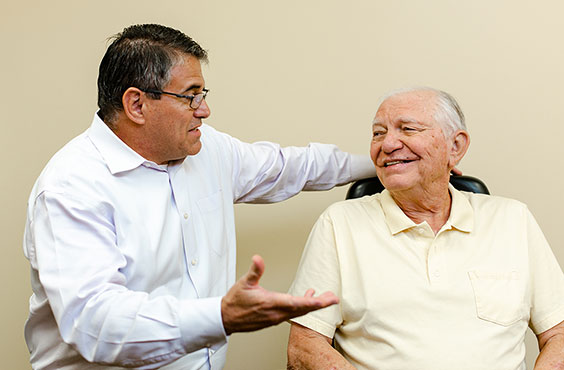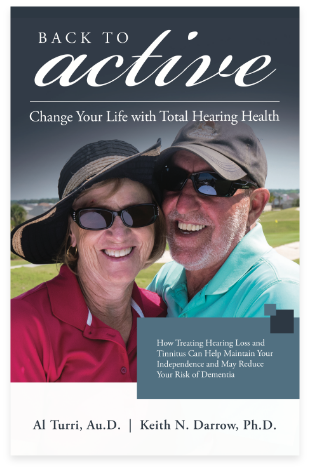Gifts are available on a first come, first serve basis. One gift per household.

What Are the Signs of Hearing Loss in Adults?
As we age, our hair may turn gray, our golf swing may get a little weaker, and our hearing might decline. Age-related hearing loss is a gradual process. It doesn’t happen overnight and if it does, you should seek medical attention immediately! The signs and symptoms of hearing loss may be subtle – even undetectable to the untrained eye (or ear), but the compounding effect will eventually become impossible to ignore. According to the Hearing Loss Association of America, the average patient won’t seek treatment for their hearing loss for seven years – putting them at risk for advanced hearing loss side effects such as depression, anxiety, and cognitive decline. This is why it’s important for adults to be able to recognize the signs and symptoms of hearing loss that will develop as we age.
If any of these symptoms sound familiar, schedule a hearing screening with an audiologist to determine the type and degree of your hearing loss to begin developing the right treatment plan for you.
- Difficulty hearing or understanding high-pitched sounds. Aging can degrade the cochlea, an organ of the inner ear that helps you hear. The cells and cilia within the inner ear are often the first to fail – which makes it difficult to pick up on higher pitched sounds, like the voices of women and children, whistles, birds chirping or even some electronic devices. This sign can be as subtle as the sounds being muffled, or as apparent as a complete inability to detect the tones.
- Social events are mentally exhausting. If you find yourself struggling to keep up or engaged in conversations that take place in loud or crowded spaces like bars or restaurants, you may be suffering from some hearing loss. Background noise registers at the lower end of the pitch spectrum. When these blend with the higher pitched sounds of voices and chatter – you will not only have trouble hearing the full conversation – but your brain will try to compensate by filling in the gaps. This compensatory processing is mentally taxing and will quickly take the fun out of going out with friends and family.
- You have a ringing or buzzing in your ears. A precursor of hearing loss is tinnitus, or a ringing in the ears. Tinnitus can precede hearing loss as well as accompany it – so be on the lookout for prolonged episodes of ringing in the ears that worsens at night or when you are not distracted by other stimuli. Tinnitus is indicative of damaged inner ear anatomy and typically coincides with progressive degenerative hearing loss, the number one sensory deficit among older adults. Don’t delay get your hearing tested and learn about FDA approved therapies for your tinnitus with up to 80% success rates.
- You’re reading people’s lips. This sign of hearing loss requires a certain element of awareness – so if you catch yourself reading someone’s lips in a conversation instead of making eye contact, you may be trying to compensate for hearing loss. In situations that make conversations difficult, like a concert – this is nothing to be worried about, but if you catch yourself doing it in quieter or more intimate settings, it may be time to talk to an audiologist.
- You’re constantly turning up the volume. If the television or radio never seem to be clear enough, and you’re always reaching for the remote to turn up the volume – you may be experiencing signs of hearing loss. When consonants and high-pitched sounds become muffled or distorted, your hearing has seen the effects of aging.
Treating your Hearing loss can be intimidating, but you’re not alone. Most Americans over the age of 65 experience age-related hearing loss. Those who seek treatment and diagnosis drastically improve their quality of life through the use of hearing devices fitted and prescribed to them by a doctor of audiology.
Call today for a free hearing consultation with a doctor of audiology at The Villages Health.
More Resources